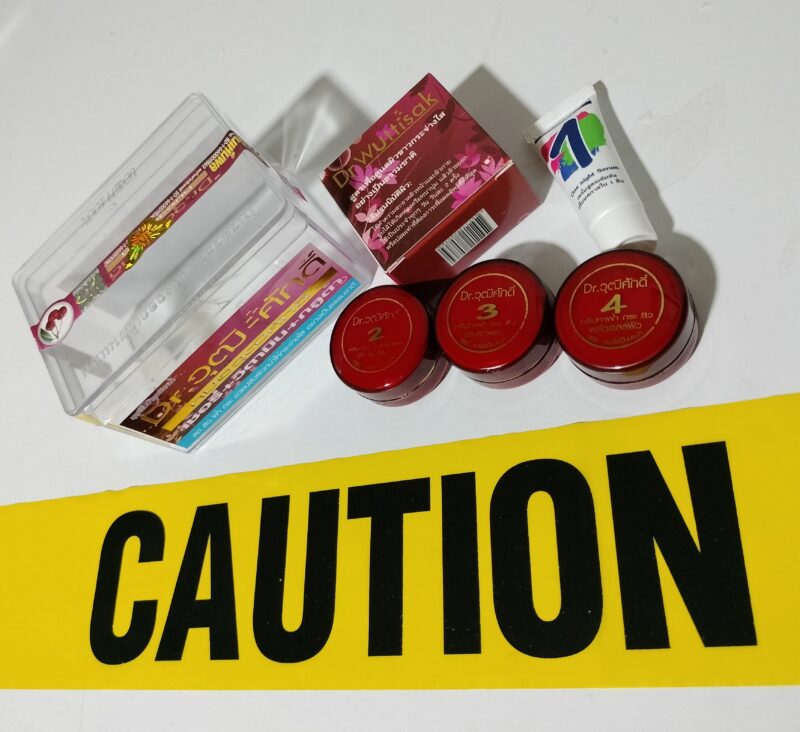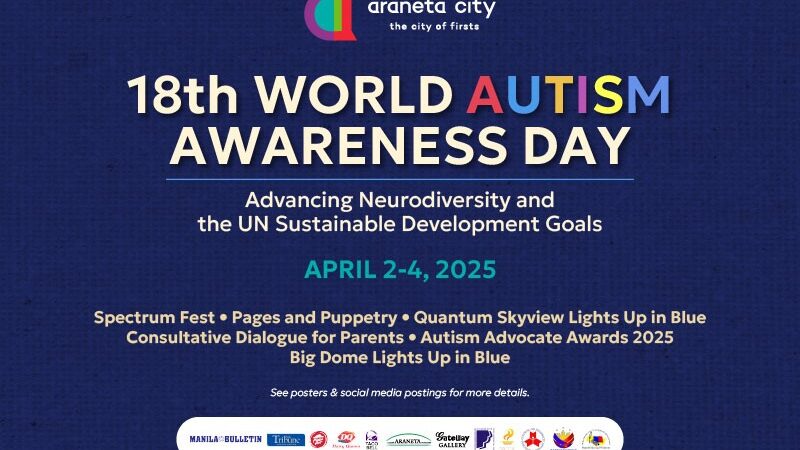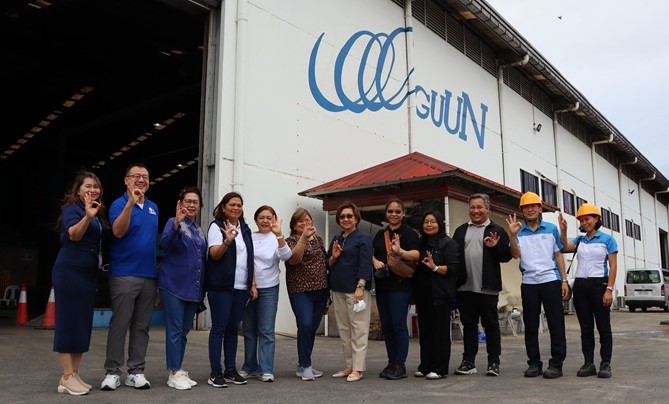Warning Out on Thailand-Made Facial Cream with High Mercury Content

30 March 2025, Quezon City. The toxics watchdog group EcoWaste Coalition has detected mercury in another skincare set from Thailand that it ordered online.
As part of its continuing advocacy to protect public health and the environment from hazardous chemicals, the group bought a red Dr. Wuttisak skincare set from an online dealer for P120.
Upon receipt of the item, the group screened the five-piece skincare set for mercury using an X-Ray Fluorescence (XRF) device, which is able to determine and quantify elements, including heavy metals like mercury, in a material.
While the soap, toner and two of the three jars of cream screened negative for mercury, jar #3 contained 10,610 parts per million (ppm) of mercury.

The EcoWaste Coalition had previously analyzed blue and green Dr. Wuttisak and also found them adulterated with mercury, which is not a permitted ingredient in cosmetics as per the ASEAN Cosmetic Directive.
The Minamata Convention on Mercury, as updated in 2023, set a new 2025 global phase-out deadline for mercury-added cosmetics, which should have been phased out in 2020 as originally planned.
Mercury is highly toxic with no known level of exposure that is considered safe, the EcoWaste Coalition said. Women of child-bearing age and children, especially babies in the womb, are very vulnerable to the adverse health impacts of mercury exposure, it added.
As stated in the fact sheet “Mercury in Skin Lightening Products” published by the World Health Organization (WHO), “adverse health effects of the inorganic mercury contained in skin lightening creams and soaps include: kidney damage, skin rashes, skin discoloration and scarring, reduction in the skin’s resistance to bacterial and fungal infections , anxiety, depression, psychosis and peripheral neuropathy.”
Mercury in skin lightening products can also contribute to environmental pollution and affect the food supply. According to WHO, “mercury in soaps, creams and other cosmetic products is eventually discharged into waste water. The mercury then enters the environment, where it becomes methylated and can enter the food chain as highly toxic methylmercury in fish.”
“Pregnant women who consume fish containing methylmercury can transfer the mercury to their fetuses, which can result in neuro-developmental deficits in children,” the WHO explained.
Mercury in skin lighteners also harm non-users such as babies as they can inhale the mercury vapors emitted from adulterated cosmetics, or get exposed by hugging or kissing persons who have used such products, or by touching blankets, pillows and towels tainted with mercury, the EcoWaste Coalition said.
To avoid mercury exposure and pollution, the group again appealed to all Filipinos to embrace our natural skin color and reject chemical whiteners such as those laden with mercury and other hazardous substances.
“Beauty has no skin tone. All colors are beautiful,” the EcoWaste Coalition insisted.
Reference:
https://iris.who.int/bitstream/handle/10665/330015/WHO-CED-PHE-EPE-19.13-eng.pdf?sequence=1







